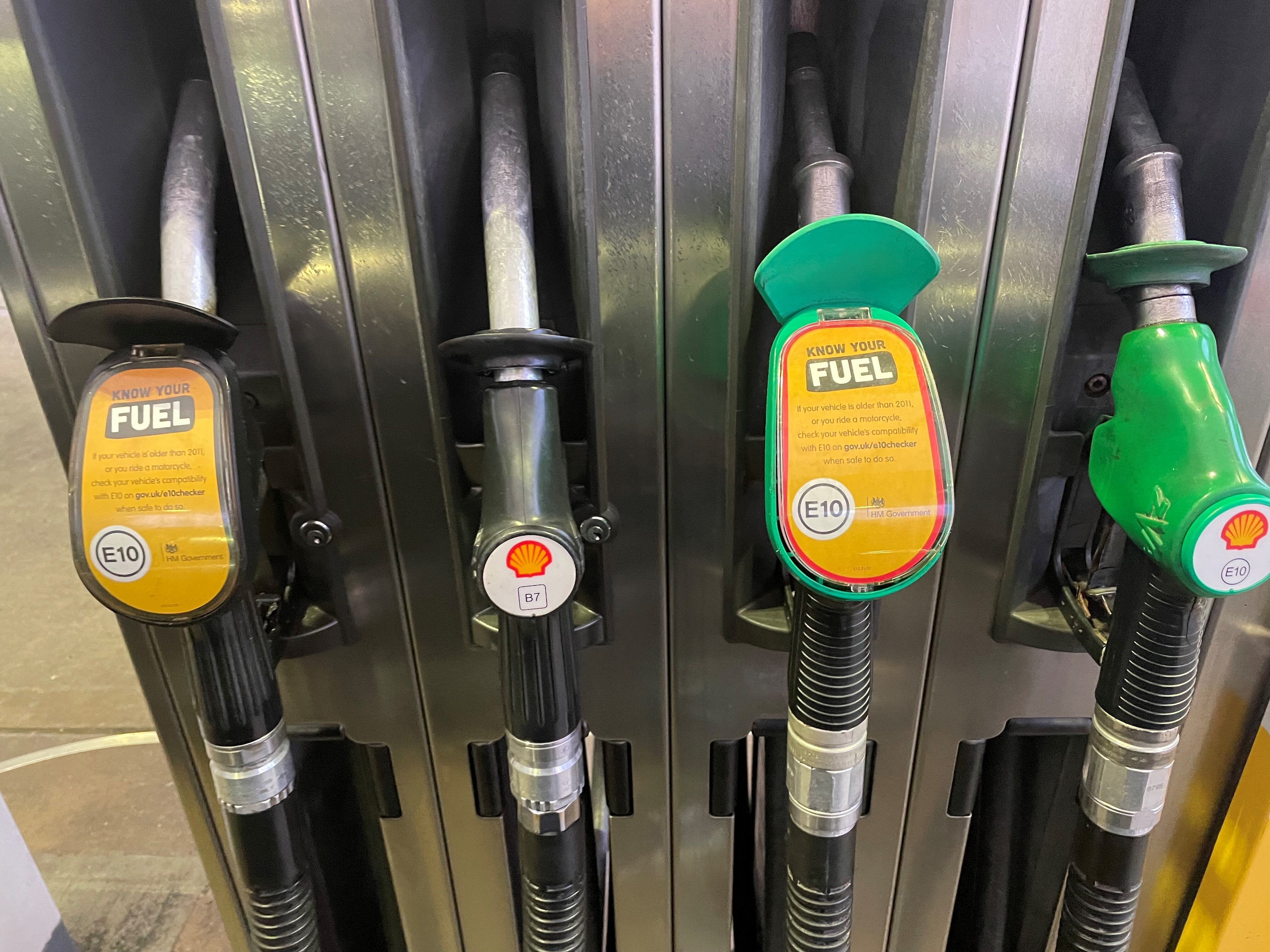Households face further spike in living costs as Ukraine war threatens to send oil to record highs
Oil disruption signals a renewed cost of living squeeze on Europe, as Ben Chapman explains


Households face further big rises in fuel prices, energy bills and other living costs, with predictions that oil could spike to its highest-ever level this year in the wake of Vladimir Putin’s invasion of Ukraine.
Despite western governments’ desperate efforts to keep Russian oil and gas flowing into Europe, imports have faced major disruption as buyers refuse to take delivery, fearing it poses too high a risk.
Brent crude jumped to an eight-year high of $111 (£83) on Wednesday and analysts warned that $150 (£112) was a realistic prospect this year – a level that implies major economic harm to Europe as people cut back on journeys and goods become more expensive to manufacture and ship.
Natural gas prices also rose again on Wednesday, with energy bills for the average home now expected to hit £2,900 in October, according to consultancy firm Cornwall Insight.
Wholesale prices are fluctuating so wildly as traders attempt to process the intensifying military campaign in Ukraine, that analysts said bills could spike hundreds of pounds higher per household. Fuel prices are already at record highs in the UK with petrol at £1.51 per litre and diesel at £1.55.
Fatih Birol, executive director of the International Energy Association (IEA), said the current situation in energy markets is “very serious and demands our full attention”.
The sharp price rises come despite western governments carving out exemptions for oil and gas from their punitive packages of sanctions against Russia and Mr Putin.
“There is a sense that Russia is too big to fail,” said Giovanni Staunovo, an oil strategist at UBS. “The market cannot deal with the world’s second largest oil exporter having problems exporting its oil.”
Oil demand is expected to hit a new high this year and supplies are already under heavy strain with production lagging behind pre-pandemic levels.
Russian oil is being sold at a massive discount of $15 to $20 (£11 to £15) a barrel because buyers fear that in the weeks between order and delivery, the conflict in Ukraine situation will deteriorate and they will be barred from taking delivery.
There are also major uncertainties around receiving payment which may normally have gone via a Russian bank now under sanctions.
“Refiners are saying Russian crude is untouchable, we can’t take it. There’s just too much risk,” said Noah Barrett, an analyst at Janus Henderson.
“Right now it doesn’t seem that in developed markets there are any buyers, even at steep discounts.”
That is causing a major supply problem for the world’s most important commodity. Russia exports around 5 million barrels of crude per day, more than 5 per cent of global supply.
Hopes that other producers would step in to flood the market with crude were dashed as the cartel of oil-exporting nations, Opec, kept with its planned level of output, despite recent supply disruption.
The group, which has strong ties to Russia, concluded one of the fastest meetings in its history on Thursday, deciding in just 13 minutes that there was no need to open the spigot further.
Current high prices were caused by geopolitical factors, not structural problems in the market, Opec ruled.
Many experts are not convinced by that diagnosis. Inventories of oil are historically low, demand is high as the world emerges from a pandemic, and capital investment in new supply is 60 per cent below where it was the last time oil prices were so high back in 2014.
One scenario that could ease supply issues is if buyers like China and India stepped up purchases of Russian crude that European refiners don’t want to touch.
But China and India have limited amount of capacity for Russian crude at their refineries. Each type of oil from different parts of the globe has slightly different technical requirement at the refinery stage.
For European consumers, there are few signs of respite and plenty of indications that energy prices – and therefore the cost of a whole host of goods – could press higher still. Bunker, the fuel used by cargo ships, has hit a record high, pushing up the cost of shipping goods.
Households look set to remain largely at the mercy of disrupted flows of fossil fuels from Russia and an unpredictable, increasingly bloody military campaign.
“There is no short-term fix to ease these supply constraints,” said Barrett.
In the medium term, Russian aggression has added a national security element to the imperative to ween Europe from its addiction to fossil fuels.
Germany has announced its ambition to open more liquified natural gas (LNG) terminals but they will take three years to build. Export capacity from Qatar and the US cannot be ramped up quickly either.
“These are massive industrial processes. It’s going to take three to four years, even if you waive all of the permitting and tried to fast track it.
One route could provide relief more quickly, though it is unlikely to be one European leaders want to shout too loudly about.
“Germany has been very vocal about its plan to move away from coal and nuclear power. I could see a scenario where ... they bring more coal and nuclear back online.”
Join our commenting forum
Join thought-provoking conversations, follow other Independent readers and see their replies
Comments
Bookmark popover
Removed from bookmarks